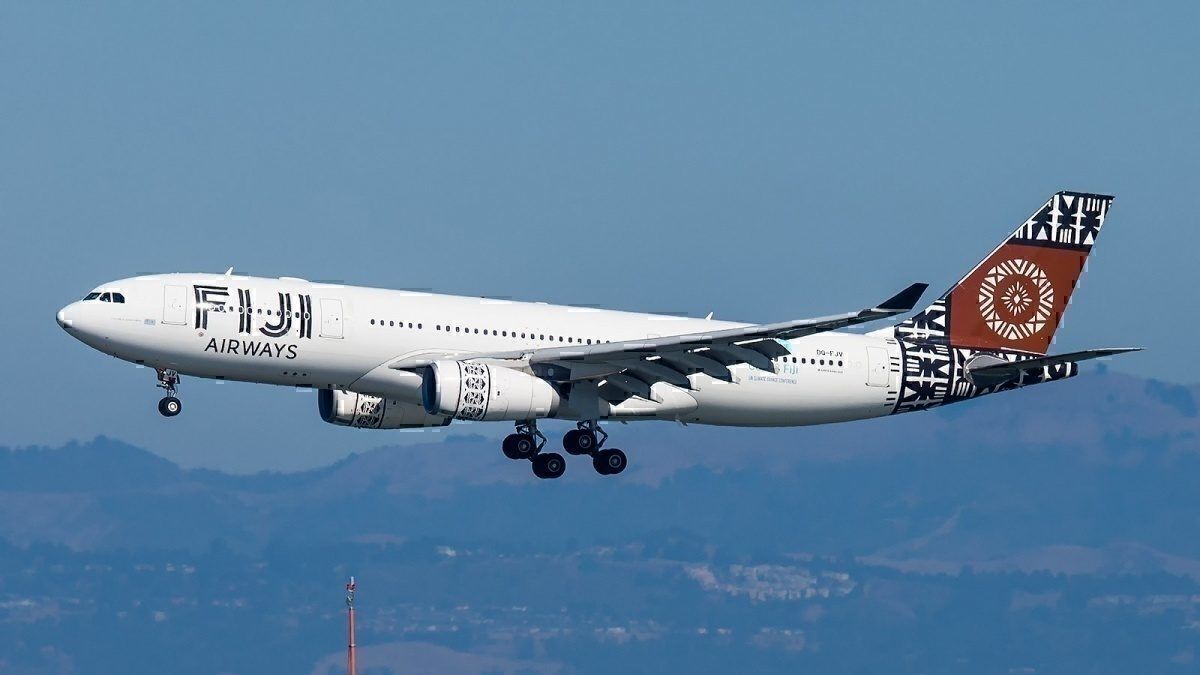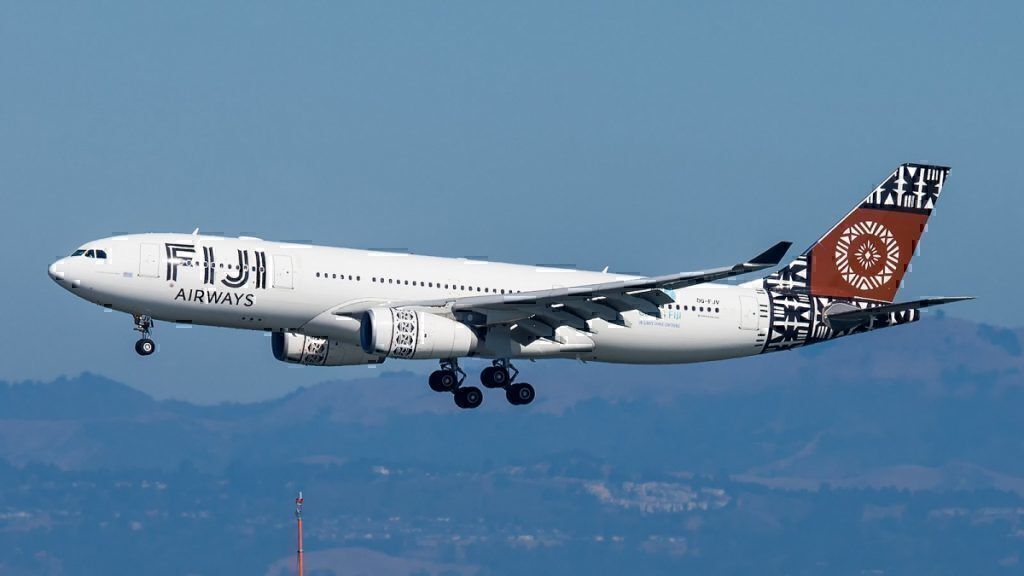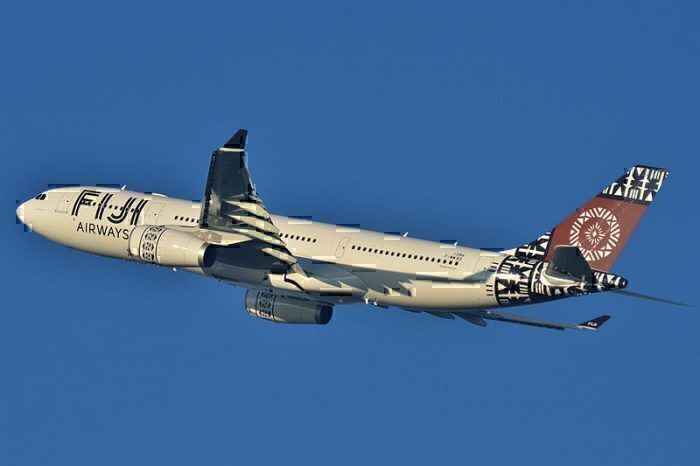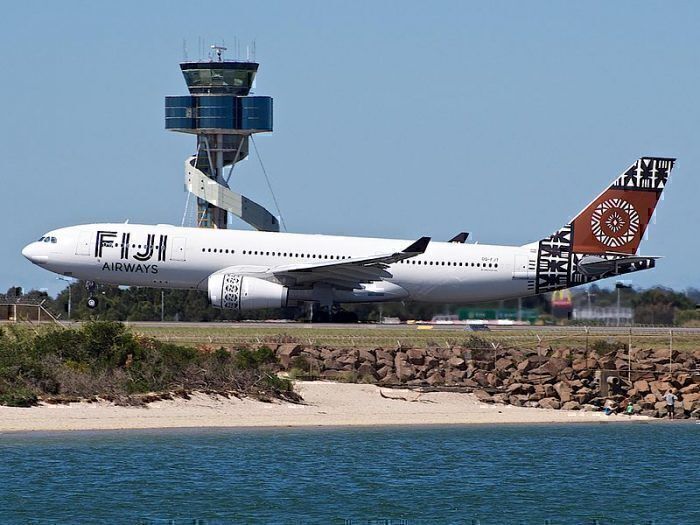In the finest tradition of younger siblings everywhere, Fiji Airways has cracked it this week and lashed out at older brother Qantas over plans by Qantas to temporarily increase its flights to Fiji. Qantas has a 46% stake in Fiji Airways and the two airlines have codeshared on flights for nearly two decades. Qantas even sponsored Fiji Airways into the Oneworld program as the first Oneworld Connect airline. But the relationship is decidedly less friendly this week following Qantas' application to operate daily flights between Sydney and Nadi across the 2019/20 summer. Fiji Airways has accused Qantas of being “aggressive”.
Catlin Fitzsimmons broke the story in The Sydney Morning Herald on Sunday, September 15, 2019. In the report Fiji Airways said the move could harm the Fijian economy, saying that Qantas was going from ally to adversary.
Fiji Airways CEO Andre Viljoen called it a “sudden, aggressive escalation in competition.”
Qantas is unfazed. A Qantas spokesperson told Simple Flying;
"We will operate a daily service for a short period over the Christmas and New Year period providing more seats, helping boost visitor numbers which ultimately supports the Fijian economy."
The Fiji-Australia market
It is useful to have a little background and context here. Tourism is Fiji’s fastest-growing industry and biggest foreign exchange earner, pulling in USD$900 million in 2018. Directly and indirectly, it provides jobs for 150,000 Fijians. In 2018, Fiji welcomed 870,309 international visitors. Aussies and Kiwis made up 65% of those arrivals. It is important.
The national carrier is Fiji Airways. It flies to 23 cities in 13 countries, primarily around Oceania, but as far afield as the United States and North Asia. In the year ending December 31, 2018, it flew 1.8 million passengers. Revenue in the same year was USD$466 million. Profit before tax was over USD$25 million. The takeaway point is that Fiji Airways makes money.
The Fijian Government has a 51% stake in Fiji Airways, Qantas has 46%, and the remainder is split between Air New Zealand and the governments of Kiribati, Tonga, Nauru and Samoa.
Turning to Fiji Airways' key international market of Australia, Fiji Airways has 56% of the market between Fiji and Australia. Fiji Airways offers daily return flights to Melbourne, Brisbane, and double daily flights to Sydney. Qantas has 6% of the market with just four 737-800 flights a week between Sydney and Nadi.
Fiji Airways argues that Qantas can funnel its passengers on Fiji Airways’ service via the existing codeshare arrangements, saying it generates money for Qantas at little cost or risk. Qantas told Simple Flying that they remain "committed to that arrangement."
Is Fiji Airways being unreasonable?
The Sydney Morning Herald has Fiji Airways’ CEO Andre Viljoen raising a number of arguments as to why Qantas should not be increasing their flights to Fiji, even temporarily. He claims the tourist market in Fiji is flat but statistics suggest otherwise.
Passenger numbers to Fiji increased by 3.3% in 2018 and tourism industry earning increased by 4.5%. Whilst Fiji Airways profit before tax was down in 2018 compared to 2017 (largely attributed to rising fuel costs and foreign exchange valuations), Fiji Airways revenue increased by 10% in 2018. Qantas also notes that adding flights will increase visitor numbers.
Andrew Viljoen also asserts that Fiji Airways doesn’t have the capacity to compete against Qantas. Market share statistics suggest otherwise. With over half the market tied up, Fiji Airways is the key player on the Australia-Fiji route and appears to be managing this very nicely. Come early January, Fiji Airways will be deploying an A350-900 each day to Sydney, further entrenching their dominance on the route.
Qantas told The Sydney Morning Herald that the increase in flights is seasonal. They cater to the hordes of families flocking to Fiji for the summer holidays. When the school holidays end, the flights will drop back to four per week. Fiji Airways is also a big beneficiary of the seasonal summer holidays migration to Fiji's beaches and resorts.
Overall
Is Qantas being aggressive? No. It is simply responding to seasonal demand. It is not swamping the route with wide-bodied aircraft or excess capacity. A daily 737-800 is measured and restrained. Fiji Airways, in comparison, comes across as determined to protect its dominance in the market. That’s fine, but their reaction has been shrill and over the top. Much like a little brother who has had a great run but now has to dodge a tiny, inconsequential hump in life.




